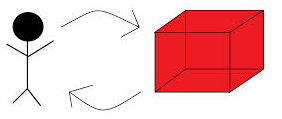
Arquivo para a ‘Information ethics’ Categoria
The difference, the wars and the calamities
All reading in the recent posts about “Heidegger’s heart: on the concept of affective tonality” by Byung Chul Han is not a mere philosophical exercise, especially because philosophy has returned to sophistry in a more sophisticated way: narrative, it is because the absence of pain perception exacerbates the difficulty in understanding the other’s pain and the difference.
heart: on the concept of affective tonality” by Byung Chul Han is not a mere philosophical exercise, especially because philosophy has returned to sophistry in a more sophisticated way: narrative, it is because the absence of pain perception exacerbates the difficulty in understanding the other’s pain and the difference.
He wrote about Hegel’s dialectic: “Heidegger uses the word ‘differ’ to describe the tragic-dialectic movement of difference”, and opens quotation marks: “But, in truth, in Hegel beings no longer exist, since all beings have dissolved into the movement of the absolute concept” (pg. 414), and added: “The “differance as differance”, the “differing”, is the blind spot of metaphysics” (pg. 415), and thus: “Différance is more contentious than than Hegel’s difference” (pg. 415) and this explains how idealist thought is more attached to highlighting its political difference than capable of understanding the true meaning of treating those who are different, especially the excluded, the innocent in wars, and The pain of a tragic flood becomes more of a game in the field of power than reaching the hearts of those who can help the affected people.
Difference “is not articulated in “contradictions” that exist in the space of identity, but works for manifestations of identity” (pg. 415), this is how pain works.
Byung-Chul opposes Hegel in addition to Heidegger also to Derridá, “differance maintains discord […] without ever forming a third expression”, maintains contention, “without ever giving reason for a solution along the lines of speculative dialectics ” (Han, pg. 416 quoting Derridá), and says “the pure play of difference is nothing, it does not even relate to its own fire” (pg. 417), see Han’s emphasis on the Western culture of “relationship ”, but the German-Korean’s wit gets there: “Subjectivity is always produced in a movement of westernization” (pg. 417).
The search for “speculative dialectics” is for an ontotheological or ontoteleological synthesis, I would say more the latter since Hegel’s god is invented, that of an abstract absolute, but not far from the triumphant God of Manichaeism, expressed not only in the justifications of wars and in différance, the westernized god also judges, condemns and excludes and makes sacred readings a game of convenience, mourning, pain and suffering have no space, everything is power, joy and consumption, the kingdom in sameness proclaiming difference.
“What does Derridá’s pain revolve around?” asks Byung-Chul, “Around the lack of a sacred name?” (pg. 424), those would say yes because not even the Absolute, or the Whole can have an ontological answer, perhaps enthelogical (in the sense of pure e objective being), but the author points out his mourning as “probably” like the difference, it is banal (Derridá says this).
In our view, the inability to mourn, to renounce, to understand pain prevents us from a complete vision of the whole as sacred. The innocent deaths of wars, natural catastrophes and respect for differences do not cause us grief, without a Sacred that references these values, we create a thing, an entity that replaces it.
Han, B.C. (2023) Coração de Heidegger: sobre o conceito de tonalidade afetiva em Martin Heidegger (Heidegger’s heart: on the concept of affective tonality in Martin Heidegger). Transl. Rafael Rodrigues Garcia, Milton Camargo Mota. Brazil, Petrópolis: Vozes.
The heart, the pain and the truth
Heidegger’s thought must start from starting, read by Byung-Chul in Introduction to the Phenomenology of Spirit “in terms of the forgetfulness of being”, he sees it as an “arid self” that finds “its limitation to the being that meets it ” (Han, pg. 334 citing Hegel).
to the Phenomenology of Spirit “in terms of the forgetfulness of being”, he sees it as an “arid self” that finds “its limitation to the being that meets it ” (Han, pg. 334 citing Hegel).
Although he recovers Hegel, in part, in the epigraph of the last chapter: “truth is the whole”, he re-discusses dialectics and its metaphysics in idealism: “in relation to “just being” which empties it to a name “that does not names nothing else”, natural consciousness… when it becomes aware of being, it assures that it is something abstract. ” (Han, pg 336).
Natural consciousness (seen in this way) “lingers on ‘perversities’… “it tries to eliminate one perversity by organizing another, without remembering the authentic inversion” where “the truth of the essence of being is withdrawn into beings” (pg. 336 with quotes from Heidegger), who sees this as a step back and the “already” forgotten, misunderstood (pg. 337), does not appear completely denied, it appears in the form of “not yet” which is not a negation, nor a barricade, since “next to the already prevents it from presenting itself” (pg. 337).
There is a whole development in contrast with Hegel’s dialectic, more than a topic it could very well be a book, but the dialogue he has with Derridá and Adorno in the chapter on Mourning and the work of mourning, leads to his vision of the whole outside of dialectical abstraction, says the concern with immortality, with killing death, is not only secret in the hearts of Plato or Hegel (pg. 384), it would be the main concern with the “cardiographic” archive of the history of philosophy, in it the philosopher “works” to reverse the negative of being.
This is what will give basis to his “work of mourning”: “being capable of death as death”, that is, being capable of mourning, this “tragedy” “is radically different from the noisy work of mourning of the Hegelian dialectic” (Han, p. 385).
“Tears free the subject from his narcissistic interiority… they are the “spell that the subject casts on nature” (Han, p. 394) now quoting Adorno, and the author states that “Aesthetic Theory is the book of tears (idem) and that unlike Kant, and that “the spirit perceives, in front of nature, and that “the spirit perceives, in relation to nature, less its own superiority than its own naturalness” (p. 395).
“The aesthetic experience shakes the narcissistic subject who considers himself sovereign and makes the hardened principle of the “I” crumble… the tear of the shaken and moved subject proves to be capable of truth” (pg. 395).
Capable of truth, of the infinite and for those who believe in God, not a God of passing goods and false joy, but that of the already, but not yet, that beyond pain and the transience of temporal things.
Han, B.C. (2023) Coração de Heidegger: sobre o conceito de tonalidade afetiva em Martin Heidegger (Heidegger’s heart: on the concept of affective tonality in Martin Heidegger). Transl. Rafael Rodrigues Garcia, Milton Camargo Mota. Brazil, Petrópolis: Vozes.
.
Pain and Being
We said previously that the chapter on the topic of the Voice could be the final one, but as Heidegger saw it, and Byung-Chul Han was faithful, it is part of the development of the Being, when talking about pain, a subject that Han also dealt with in the “Palliative Society: pain today” and we have already made some posts, the way we treat the pandemic and now the floods that affected thousands of lives in Rio Grande do Sul, should be a point of analysis and understanding, in a society that does not want to look at this side of life: suffering and pain.
of the Voice could be the final one, but as Heidegger saw it, and Byung-Chul Han was faithful, it is part of the development of the Being, when talking about pain, a subject that Han also dealt with in the “Palliative Society: pain today” and we have already made some posts, the way we treat the pandemic and now the floods that affected thousands of lives in Rio Grande do Sul, should be a point of analysis and understanding, in a society that does not want to look at this side of life: suffering and pain.
Not by chance, Heidegger addresses this when elaborating on Parmenides, where ontology is reduced to Being is and non-Being is not, to a logic A and not-A, with no third hypothesis, there Heidegger speaks of “a certain death (sacrificial ) of the human being: “But the supreme form of pain is the dying of death, which sacrifices the human being for the preservation of the truth of being” (pg. 321), so the sacrifice is not here, as “the sacrifice has in itself its own essence and does not need objectives or benefits? ” (idem).
In the previous post we discussed idealistic sleep, here Han quotes Foucault asking “is it a matter of a certain agony to awaken the thought of an “anthropological awakening”?” (idem), perhaps an anthropotechnical awake or even as we prefer an onto-anthropotechnical sleep, since the forgetfulness of being is not just a philosophical category.
When addressing the emptiness of modern man, also based on the reading of Foucault, Han recalls that Heidegger, when resuming the metaphysical category “subjectum”, which in “its essence is modern man is the “subject” and it is exactly here that Heidegger “criticizes implicitly anthropological thought” (pg. 322), it is according to Heidegger: “the continuation of Cartesianism”, Han quoting him: “With the interpretation of man as subjectum. Descartes creates the metaphysical presupposition for future anthropology of every type and orientation” (pg. 323).
Thus it is not man’s opposition to beings, but modernity’s mistaken opposition to language: “concern for language would be concern for death. Giving language back to man would therefore mean giving him back death, his mortality” (pg. 324), and it is also not about the ‘being’ or ‘non-being’ of the human being” (pg. 325-326 ).
It is important to highlight the calculating economy seen by Heidegger: “Pain is from ‘because’, not from ‘due to’… mourning does not lament, it does not seek to fill the place that was left empty… mourning without mourning is only conceivable outside of economics (VIII.3)” (pg. 328).
Pain is not the resignation of absolute interiority: “the subject who works on identity, returning to himself in his interiority, assimilating the world, is incapable of pain” (pg. 329), while other thinkers stopped in anguish or in the search through difference or even through the subject destined for an “absolute spirit”, Heidegger sees in pain a “fundamental affective tone of melancholy” (pg. 329), it is the tone of being… of finitude… of finite thought, “ it is the identical feature that, as the basis of a certain formal manner, supports every fundamental tonality occupied by some content, the main feature that, as the same, is the basis of the mode as the respective tuning” (pg. 330).
So pain, for Heidegger and I suppose for Han (he treats it a little differently in the palliative society), !pain is not the eye that cries, or the face contorted by hunger or torture”, pain opens a space in which thinking becomes possible for the first time… a space without anthropological traces, and from which the subject disappeared… thinking would be, a gift of pain” (pg. 331).
The conclusion of this topic: “the rift of pain drags the veiled march of grace until an unused advent of clemency” (pg. 332), which is why we venerate power, violence and the lack of vision of true peace, love outside the bubbles, selfishness and ultimately a lack of “clemency”, it may seem like a religious matter only, but it is the search for the essence of Being.
Han, B.C. (2023) Coração de Heidegger: sobre o conceito de tonalidade afetiva em Martin Heidegger (Heidegger’s heart: on the concept of affective tonality in Martin Heidegger). Transl. Rafael Rodrigues Garcia, Milton Camargo Mota. Brazil, Petrópolis: Vozes.
Waiting for hope greater than the rush
Someone wrote that hope would not be the verb wait, but Alexandre Dumas wrote: “all human wisdom is summed up in two words: wait and hope”, so hope is articulated with wait as trust with confidence, synonymous with hope, as we have already said in another post she opposes the fear, anguish and emptiness of modern nihilism, themes already developed in Byung-Chul’s reading of Heidegger.
wait, but Alexandre Dumas wrote: “all human wisdom is summed up in two words: wait and hope”, so hope is articulated with wait as trust with confidence, synonymous with hope, as we have already said in another post she opposes the fear, anguish and emptiness of modern nihilism, themes already developed in Byung-Chul’s reading of Heidegger.
We want to reread Han’s reinterpretation of Waiting or Containment, VII 2.3 which begins on page 302, as we said previously this is the author’s longest essay and perhaps (I think so) his first truly philosophical writings, since it combines Heidegger with his vision of Kant, Hegel, Derridá and Lévinas, the latter seems to the author’s taste.
Chul-Han states that this is the author’s initial affective tone, when writing his youthful poem, in 1910: “in front of the gate of the spring garden / we wait and listen / until the larks fly / until the songs and the violins / the murmur of the fountains / the silver / bells of the flocks / become a universal chorus of joy” (Han, pg. 302 quoting Heidegger), as the author says it seems “sung in naive images” but late Heidegger seems to wait for “the day of Being” which also resonates naively, but “waiting in Heidegger is not linked to a chronological date nor to an empirical event” … it is “a singular movement, in a flat (non) intentionality, in a (non-) peculiar economy” (page 303), “does not wait for a deficiency to be repaired” (idem).
In the seminar on Heraclitus, Byung-Chul wrote, he makes the difference between waiting and having hope: “having hope always includes counting on something, while waiting – if we stick to the word – is an attitude of conformity […] Having hope it means “to be firmly occupied with something”, while in waiting there is resignation, reserve” (pg. 304) so I think, in hope there is a confidence in what I am occupied with.
However, he completes the idea of waiting with restraint, he will write: patience and waiting are “basic traits of restraint” (pg. 305), thus it articulates in the face of the “infinite absence of a tangible counterpart”, “it is the basic trait of serenity” , the lack of contemporary serenity is largely due to a lack of waiting, restraint and patience.
There is thus an articulation between the “not yet” and the “already”, so “Heidegger’s waiting cannot be described as the intentionality of waiting until the end” (pg. 306), “nothing happens only in waiting, which distances itself from the impatient putting-in-front-of-itself, from the intentionality of representation” (pg. 307), in this Heidegger will explain how “renunciation is a counter-economic measure”, he states quoted by Han: “True renunciation – that is , sustained and achieved by a genuinely expansive fundamental affective tone – is creative and generating. By allowing her former possession to go, she receives, and not later as a reward; Bearing in mourning the need to renounce giving in is in itself a reception” (Han, pg. 307, citing Heidegger).
Thinking learns to be grateful by learning to renounce, wrote Han and quoting Heidegger: “Renunciation is a gratitude in not denying oneself, that is where renunciation lies. Renunciation is having to be grateful and, therefore, gratitude” (pg. 308), we theorize here in countless posts the issue of power, renunciation is its position and opposite, “only the gift, which is only possible beyond the economy, makes conceivable gratitude” (pg. 309) and thus it is a “symbolic retribution” “a non-economic thought, which distances itself from the “calculative understanding” (pg. 309), “grateful thinking radically questions the autonomy of the subject without installing a trans-objective instance of power” (idem) and concludes that the “autonomous and trans-objective” “structure would restore the economy” (pg. 309).
Trusting is thus an articulation of the containment of waiting with patience in hope, whoever trusts is capable of renouncing and being grateful, and has his payment in these gifts.
Han, B.C. (2023) Coração de Heidegger: sobre o conceito de tonalidade afetiva em Martin Heidegger (Heidegger’s heart: on the concept of affective tonality in Martin Heidegger). Transl. Rafael Rodrigues Garcia, Milton Camargo Mota. Brazil, Petrópolis: Vozes.
Affective tone and asceticism
 After a digression on Being-there, objectivity and subjectivity in authors other than Heidegger (it is typical of idealism), Byung-Chul Han returns to the “affective tone” on page 28 in the Brazilian edition, the “how it is”, “it is not an inner landscape of the soul that closes behind the skin and never emerges into “objective” space. Its site is “further out than an object can ever be” (pg. 58), which could be anticipated if it weren’t for the dialogue.
After a digression on Being-there, objectivity and subjectivity in authors other than Heidegger (it is typical of idealism), Byung-Chul Han returns to the “affective tone” on page 28 in the Brazilian edition, the “how it is”, “it is not an inner landscape of the soul that closes behind the skin and never emerges into “objective” space. Its site is “further out than an object can ever be” (pg. 58), which could be anticipated if it weren’t for the dialogue.
To understand this different form of ascesis, contrary to the distance from the object that idealism proposes, the affective tonality “possesses an a priori anteriority that is not, however, attributable to the transcendental capacity of the subject, a pre-vision that sees before the object be outlined” (page 58).
Understanding objects as “beings”, “letting entities be, which is an attunement, penetrates and precedes all behavior that remains open and develops” and “the opening of entities in their totality does not coincide with the sum of currently known entities” (pg. 58), so any rationalist analysis is fragmentary and does not “see” the entities.
And furthermore, the “in the midst of beings in totality” is not verified by any reflection, so the thematization itself, “which always proposes an original scenario” is already an interpretation (pg. 59).
The affective tonality opens the space of there, according to Han, “which floods consciousness and which must be given in advance so that it can begin its thematizing work and discourse, and concludes with a quote from Heidegger: “Consciousness is only possible on the foundation of there as a derivative mode of it”.
Thus “the a priori event already presupposes an interpretation, and this temporal difference, which is placed before the interval of countable time, remains constitutive for the difference between being and being” (pg. 59), which is why ontologically the difference exists and not the idealistic separation as idealism supposes.
Thus, true ascesis is not a separation of the world (objective and subjective), but in the world through the difference between being and being, only a divided ascension (through death) can definitively separate being from being, thus we are in the relationship of an “affective tone ”.
Han, B.C. (2023) Coração de Heidegger: sobre o conceito de tonalidade afetiva em Martin Heidegger (Heidegger’s heart: on the concept of affective tonality in Martin Heidegger). Transl.Rafael Rodrigues Garcia, Milton Camargo Mota. Brazil, Petrópolis: Vozes.
Plurality, polyphony and tonality
Although Byung Chul Han in his reading of Heidegger and his affective tonality, describes plural democracy only in passing, when commenting on “polyphony” that Derrida opposing “totality does not exclude tonality. The juxtaposition of notes would be equivalent to the monotony of a disturbed heart, which would certainly be distinct from the atonal heart” (Han, 2023, pg. 16).
of Heidegger and his affective tonality, describes plural democracy only in passing, when commenting on “polyphony” that Derrida opposing “totality does not exclude tonality. The juxtaposition of notes would be equivalent to the monotony of a disturbed heart, which would certainly be distinct from the atonal heart” (Han, 2023, pg. 16).
To better develop the question of the state and its plurality, Heidegger approaches the “art of living… limited where the world begins to be populated with the hearts of others, where we no longer find ourselves in proximity to the aesthetic” (page 17 ).
It will explore Hegel’s conflict of hearts that he intended to resolve dialectically and does not appear in Heidegger (pg. 18), his “poetics” is not identified “with the politics of the heart” (idem).
After the failure of the subject of Faustian pleasure (Hegel quotes Goethe’s Faust), Hegel, when opposing the particular with the universal, does not find himself again in the “universal order”, this immediate opening of the heart to the universal, the universalization of the heart makes self-consciousness “go crazy” and cause a head-on collision between the universal and the particular that splits consciousness (pg. 18).
Generating this “singularity of consciousness, which wants to be immediately universal” results in schizophrenia (pgs. 18-19), is a fundamental excerpt from Byung-Chul Han capable of explaining even the great wars and the global war moment.
She shows what happens to hearts with the “pulse of the heart” towards the universal, which turns into “the fury of a wild presumption”, postulates “the madness of the world order” (pg. 19), the effective heart is repressive , is effective by repressing other hearts.
The circumcision of the heart of the particular by the “spirit” (claimed by Hegel), suppresses the particular in favor of the universal, “knowing the law of the heart as the law of all hearts, and the consciousness of the Self as the recognized universal order” (Han quoting Hegel, pg.20).
Heidegger opposes the law of the house (oikos), of the domestic fire beyond the dialectical economy, it “must not step on the stage of speeches” (Han, pg. 21), this “dispute without war” (in Hegel’s view) does not bears no family resemblance to the conflict of speeches (pg. 21).
“Hegel’s heart, which in the third part of the Encyclopedia becomes the seat of sensations, lacks all objectivity and universality” (Han, pg. 22), in it Hegel’s “blind heart only knows how to express something “singularized, contingent, unilaterally subjective” … “it is a merely subjective reaction to external sensation” (pg. 22), and Han gives the antidote, calling it a gift.
The Being with a gift is the “singular par excellence, which, in its singularity, is solely the uniquely unifying one, before all number”, the impossibility of number nullifies the economy of exchange (pg. 25).
What must be taken back must be given as a gift, it is necessary to keep this gift away from the economy of exchange, to release it from the economic circle of exchange”, this is the principle of affect.
Han, B.C. (2023) Coração de Heidegger: sobre o conceito de tonalidade afetiva em Martin Heidegger (Heidegger’s heart: on the concept of affective tonality in Martin Heidegger). Transl.Rafael Rodrigues Garcia, Milton Camargo Mota. Brazil, Petrópolis: Vozes.
Ontology, Kant and affective tone
 Like a good Oriental man, although based in Germany, Byung-Chul Han starts his analysis not from the objectivist, materialist and substantialist´s perspective of the classic authors of Western philosophy, but from the perspective of what he will call “affective tone” in Heidegger.
Like a good Oriental man, although based in Germany, Byung-Chul Han starts his analysis not from the objectivist, materialist and substantialist´s perspective of the classic authors of Western philosophy, but from the perspective of what he will call “affective tone” in Heidegger.
His book, different from others that I consider essays, analyzes “Heidegger’s heart: on the concept of affective tonality in Martin Heidegger” (Ed. Vozes, 2023), with this new, human and I would even say spiritual analysis of the core of philosophy western.
Part of a concept dear to Judeo-Christian civilization, which is that of circumcision, but circumcision of the heart and not of the failed organ (the skin attached to the beginning of the penis), it is necessary to remember that although it is a male organ, it is an emblem of power, of authority and desire, was culturally a warlike culture.
Apart from his religious vision, he has a spiritual sense for the whole society, contrary to what Han will develop, which is the circumcision of the heart, that which modulates and governs affection.
It begins with what is the root of Eurocentric culture, starting with Kant’s hypochondria, which he confesses in his text “Conflict of the Faculties”: “because of a flat and narrow half-chest, which leaves little space for the movement of the heart and lungs, I I have a natural predisposition to hypochondria, which in previous years bordered on the boredom of life” (Han, 2023, pg. 8), and then develops “yearning expands the heart, makes it define and exhausts the strength” (pg. 9 ).
This longing, you will say, is not also painless for Heidegger, but according to this author (it was Han’s doctoral thesis), the longing is the “pain of the proximity of distance”, the spell of the “always-the-same”, but in a movement of leaving the in-itself there is a “seam” with the Other (for example, rescue in natural disaster in south Brazil, foto).
Thus, Han will say, Heidegger’s “seamstress (Näherin), “works in proximity”, is also a circumciser of the heart (pg. 10), developing it by converting it “into a heteroauditory eardrum” (pg. 10) , “the heart of being-there” throbs in the transcendental horizon, thus according to Han in the late Heidegger, “the constriction penetrates more deeply” and being-there separates itself from the being of there: Da-Sein (Han, pg. 11 ).
Thus, “this circumcision frees the heart from subjective interiority” (Han, Idem), and there is a surprising preliminary conclusion in Heidegger: “Heidegger’s heart, on the other hand [confronts with Derridá], listens to one voice, follows the tonality and gravity of the “one, the only one that unifies”, for him it is an “ear of his heart” but there is something strong spiritual in this.
Spiritually there is an inner voice that speaks to our hearts if they are circumcised.
Heidegger, M. (2023) Coração de Heidegger: sobre o conceito de tonalidade afetiva em Martin Heidegger (Heidegger’s heart: on the concept of affective tonality in Martin Heidegger). Transl.Rafael Rodrigues Garcia, Milton Camargo Mota. Brazil, Petrópolis: Vozes.
The world-man and the provincial
It is possible for someone to have a feeling capable of embracing humanity in its differences and contradictions, if they are capable of embracing the illnesses and wounds of others.
of embracing humanity in its differences and contradictions, if they are capable of embracing the illnesses and wounds of others.
He who is capable of understanding the world as a whole, understanding the complexity of different cultures, feelings and cultural systems, is capable of embracing and sympathizing with the pains of humanity, this is a man-of-the-world.
The provincial is not able to see beyond his village, one can even praise the spirit of apparent peace and delight of those who live in a small world, or in a bubble, but it is from there that the worst prejudices, the worst xenophobia and the inability to see beyond.
If Honoré de Balzac said: in the provinces we live in public, now in the global village we all live in public, each citizen carries a camera that can record everything.
To be a sign of hope in the world, in an increasingly conflictive time, it is necessary to go beyond our own concepts (which are pre-concepts) and understand that the logic of social life has been changing since we started living in a global village, culture enters through TV, radio and social media, and there is no going back, they are here to stay.
The sins and misunderstandings that they gave rise to are not new, they have just become more visible now and we are faced with a society that has difficulty seeing others with respect and understanding.
Those who want freedom are quick to limit it, those who proclaim love do not want the same love outside their bubbles, we do not resolve our difficulties and wounds and at the same time we increase the climate of misunderstanding in humanity.
The great contemporary empires work culturally on these difficulties, hatred of those who are different, intolerance to the culture of others, and thus we feed in microcosm the policy of a growing warmongering that threatens to take over all of humanity.
It has never been so urgent to love one another, there are even those who proclaim it, but for their small village or their provincial bubble.
Modern empires and work
The beginning of modernity marked a rupture between the practical world, objective of reason, called objective by idealism, and a sensitive world, of love, hope and balanced life, where human nature can express itself and develop, called in an incorrect way of subjectivity (which would be typical of the subject).
between the practical world, objective of reason, called objective by idealism, and a sensitive world, of love, hope and balanced life, where human nature can express itself and develop, called in an incorrect way of subjectivity (which would be typical of the subject).
There were many authors who from the beginning of the 20th century began to question this division of man into vita activa and vita contemplativa, Hannah Arendt and currently Byung Chul Han are the most remembered, however the idea of contemplation comes from antiquity, from Stoics and of some mystics studied in Patristics, such as Gregory of Nazianzus, (329-390) one of the masters of contemplation being cited by Chul Han.
The word work comes from tripalhium, it arises from medieval tortures that allude to removing the “guts” from the continuous effort without rest that will mark the beginning of the industrial revolution until the achievement of the limit of working hours and some minimum laws of respect for life human.
In the Middle Ages, it was in monasteries that the first crafts, cooking techniques (such as sausages made to preserve meat) were born, and also libraries and copyists who began contemplative human work (it is not subjective), such as motto among Benedictine monks: ora et labora (meditate and work).
It is good to remember that the heavy work until the emergence of monasteries was done by “free” men and that many monks had noble origins and went to the monastery to learn how to work and also to read and write because a large part of humanity at that time was illiterate, and the prevention of myopia and hyperopia must also be remembered, as glasses and lenses date back to the end of the middle ages.
After the conception of modern industry and the state, which is also the boss of state-owned companies, monopolies in socialist countries, which are no different in demanding efficiency and maximum effort, imprisoning man in the “vita activa” with no space to be and develop their full life, with space for meditation and leisure.
Already in the English industrial revolution, Gin (which is the pinga in Brazil) moved the maximum capacity of modern industrial slaves deprived of domestic life, leisure and culture.
What the post-industrial, post-modernist society will be is still unknown. For now, the empires want a monopoly on the productive forces to guarantee power over the workforce and not give freedom for full human development, full life is postponed.
The great divine gift that is life and living it in abundance will depend on great changes, empires fight to ensure that this does not happen, although they say it is for freedom.
The great empires in antiquity
There is always a historical and a biblical narrative, the dates coincide, but the battles do not.
narrative, the dates coincide, but the battles do not.
One of the great empires of antiquity was Assyria, from the 7th century BC (approximately 721 BC until the 630th century BC. the beginning of its fall, they dominated a large part of Arabia, conquering the Babylonian lands, which dominated the Hebrew people and the Chaldeans, Egypt, the Medes and Elamites.
The biblical narrative focuses mainly on the period of Sargon and Sennacherib (745-661 BC) and it is from this time that the prophet Isaiah narrates the words of Sennacherib to Hezekiah: “this is what you will say to Hezekiah: Thus speaks the great king, the king from Assyria where so much Confidence comes from, the king mocks him for the alliance he had with Egypt and will also conquer that people.
In Isaiah 37, there is the following narrative about the years of suffering, followed by victory, “this year they eat stubble; next year, what is born alone; But in the third year I will plant and you will reap; you will plant vineyards and eat their fruit” and then further on he narrates a battle in which “the angel of the Lord appeared in the Assyrian camp and struck down eighty-five thousand men”, even today a very high number.
What is certain is that in the year 630 BC the Assyrians retreat from Egypt and then from Babylon, which will also dominate the Hebrew lands in Isaiah 39, initially the king of Babylon, Merodach-Baladan, sends messages and gifts to King Hezekiah, who was ill. , but then the prophet Isaiah warns King Hezekiah: “Listen to the word of the Lord of hosts! The time is approaching when everything that is in your palace, everything that your fathers have accumulated until this day, will be taken to Babylon”, and so it happened during the 50 years of the Babylonian exile.]
Who freed the Jews. It was King Darius, who ruled the Persian Empire and who was an enemy of Babylon, through the prophet Daniel, whom he venerated for his prophecies, granted the Jewish people to rebuild their temple and return to their land.
The Persian empire lasted until 330 BC and is well known in official historiography because of the “medical” wars between the Greeks and the Persians, but see that historically the Medes were a people to the east of Assyria, while the Greeks to the west and already on the European continent, it turns out that they were simultaneous in the period from 500 to 448 BC for more than 50 years.
Between wars and challenges, oracles and prophets helped the people to walk through these periods.
The possible historical lesson is that great empires fell due to their pride and oppression, the spiritual lesson is do not let your heart be intimidated, evil dies by its own evil.

